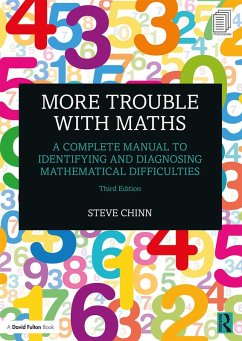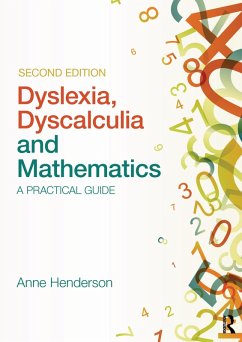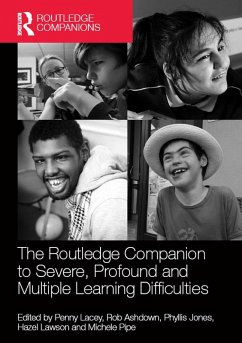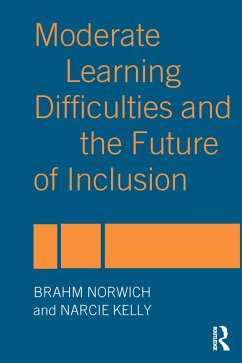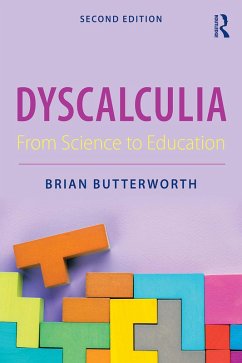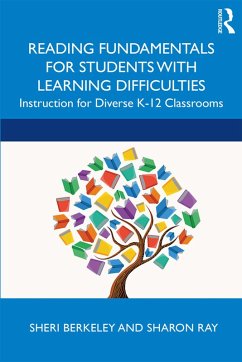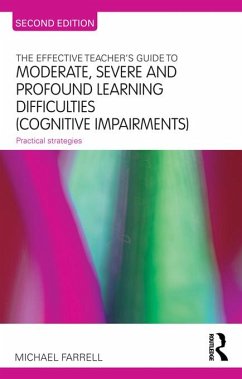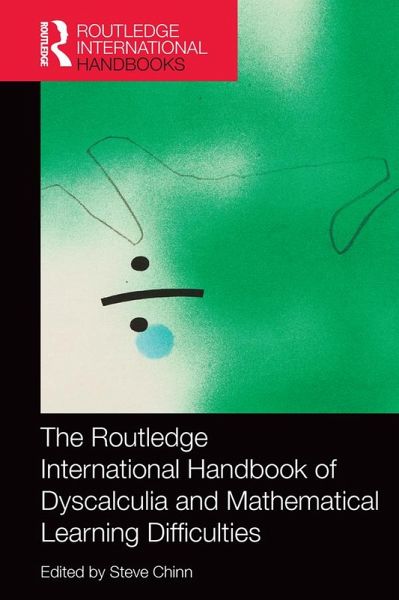
The Routledge International Handbook of Dyscalculia and Mathematical Learning Difficulties (eBook, PDF)

PAYBACK Punkte
26 °P sammeln!
Mathematics plays an important part in every person's life, so why isn't everyone good at it? The Routledge International Handbook of Dyscalculia and Mathematical Learning Difficulties brings together commissioned pieces by a range of hand-picked influential, international authors from a variety of disciplines, all of whom share a high public profile. More than fifty experts write about mathematics learning difficulties and disabilities from a range of perspectives and answer questions such as: What are mathematics learning difficulties and disabilities? What are the key skills and concepts fo...
Mathematics plays an important part in every person's life, so why isn't everyone good at it? The Routledge International Handbook of Dyscalculia and Mathematical Learning Difficulties brings together commissioned pieces by a range of hand-picked influential, international authors from a variety of disciplines, all of whom share a high public profile. More than fifty experts write about mathematics learning difficulties and disabilities from a range of perspectives and answer questions such as:
By posing notoriously difficult questions such as these and studying the answers The Routledge International Handbook of Dyscalculia and Mathematical Learning Difficulties is the authoritative volume and is essential reading for academics in the field of mathematics. It is an incredibly important contribution to the study of dyscalculia and mathematical difficulties in children and young adults.
- What are mathematics learning difficulties and disabilities?
- What are the key skills and concepts for learning mathematics?
- How will IT help, now and in the future?
- What is the role of language and vocabulary?
- How should we teach mathematics?
By posing notoriously difficult questions such as these and studying the answers The Routledge International Handbook of Dyscalculia and Mathematical Learning Difficulties is the authoritative volume and is essential reading for academics in the field of mathematics. It is an incredibly important contribution to the study of dyscalculia and mathematical difficulties in children and young adults.
Dieser Download kann aus rechtlichen Gründen nur mit Rechnungsadresse in A, B, BG, CY, CZ, D, DK, EW, E, FIN, F, GR, HR, H, IRL, I, LT, L, LR, M, NL, PL, P, R, S, SLO, SK ausgeliefert werden.




